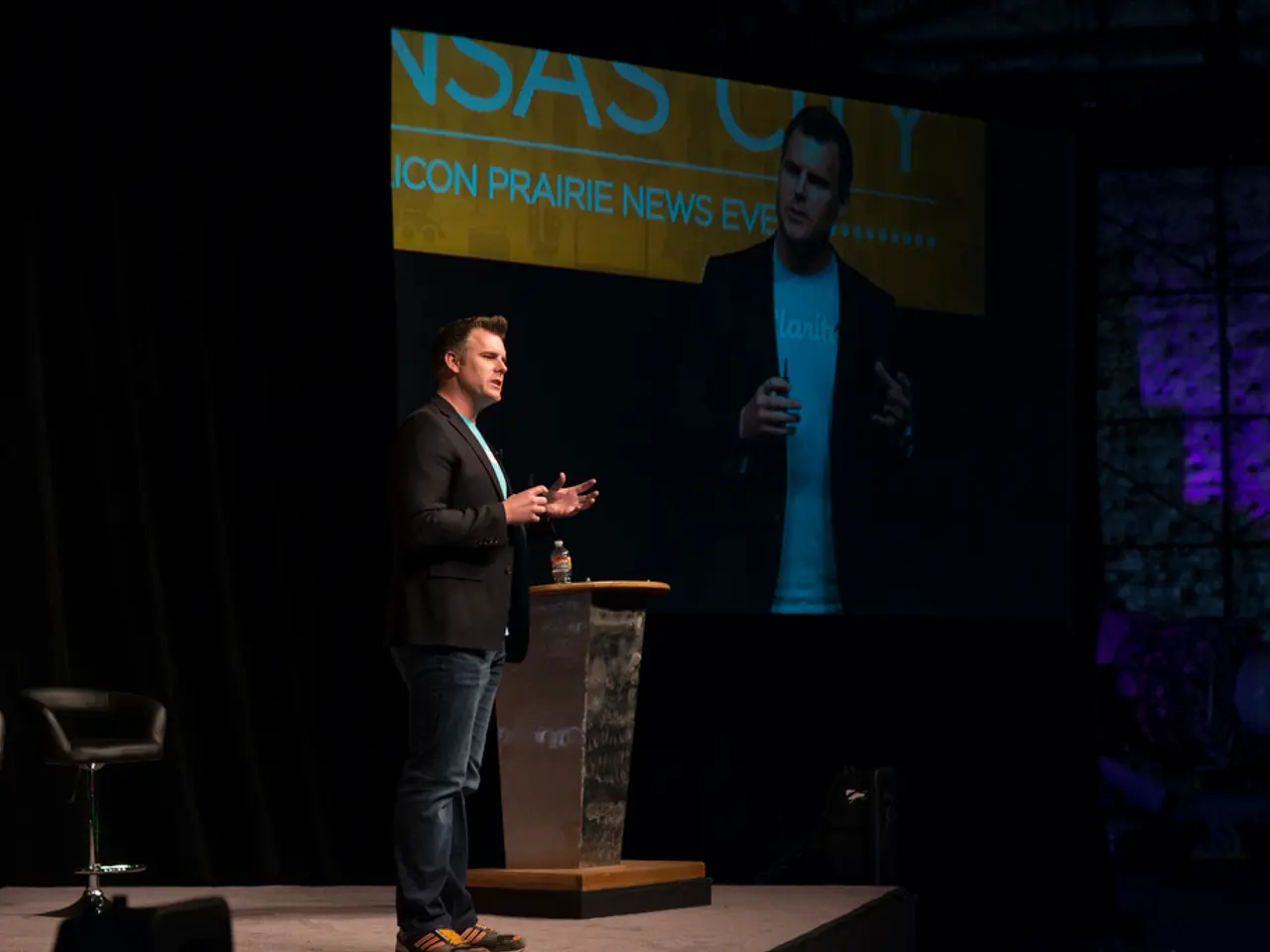AI Transformation's Hidden Obstacle: The Lack of Relevant Skills According to PwC's Global AI Employment Report
In the rapidly evolving landscape of artificial intelligence (AI), organizations are increasingly recognizing the importance of investing in their workforce to address the growing AI skills gap. According to PwC's 2025 Global AI Jobs Barometer, the most effective strategies for organizations to thrive in this new era focus on upskilling and reskilling employees, fostering a culture that embraces AI, and redefining roles to leverage AI augmentation rather than replacement.
One key strategy is investing in AI skills development. Organizations should prioritize training their workforce in AI-related skills that are increasingly demanded across industries. The Barometer shows a growing premium for AI-skilled workers and faster wage growth in AI-exposed roles, indicating strong business value in such skills.
Another important approach is creating adaptive, augmented roles. Instead of fully automating jobs, many roles are being transformed where AI acts as an assistant to humans, improving productivity and job complexity. Firms should redesign jobs to integrate AI support, turning employees into problem-solvers, data interpreters, or AI ethicists.
Embracing AI also requires adaptive cultures that are open to change and continuous learning. This includes leadership commitment to AI literacy, fostering collaboration between humans and AI tools, and promoting innovation. Tailored sector-specific approaches are also essential, as AI adoption varies by industry.
To truly realize the potential of AI, organizations must invest in talent as much as technology. The strategy emphasizes the importance of continuous adaptation alongside technology, focusing on building digital and human skills needed to work alongside AI. This approach ensures that every employee has the opportunity to evolve with AI-accelerated change.
Recent research reveals that 52% of tech leaders believe they are facing an AI skills gap, underscoring the urgency of this issue. However, the report suggests that AI cannot be treated as plug-and-play, but requires people to work differently, think differently, and continuously adapt alongside technology. This approach applies to all levels of the organization, from the frontline to the C-suite.
The success of an organization in the AI era is dependent on its ability to invest in the development of its workforce. The most successful organizations are treating skilling as a strategic imperative, prioritizing the development of skills required to work with AI, rather than just using AI as a tool.
The PwC Global AI Jobs Barometer indicates that organizations actively embracing AI and equipping their workforce with the right skills are thriving. The goal is to build skills that demonstrate the value of AI within the organization, ultimately driving productivity and competitive advantage. Transformation with AI doesn't happen through technology alone, it happens through people. Every employee, from the frontline to the C-suite, has the opportunity to evolve in these organizations, ensuring a prosperous future for both individuals and businesses in the AI-driven world.
- In addition to technology, education and self-development focused on artificial-intelligence (AI) will be crucial for individuals seeking career advancement in business (careers).
- By embracing a culture that values continuous learning and interdisciplinary collaboration, organizations can leverage technology, such as AI, to not only boost productivity (technology) but also foster personal-growth for their employees.
- To remain competitive in the AI-driven business landscape, it's essential for organizations not only to prioritize investment in AI technology but also to enable their workforce with AI-related skills, positioning employees as integrated players in the transformation of their roles and the organization as a whole.




